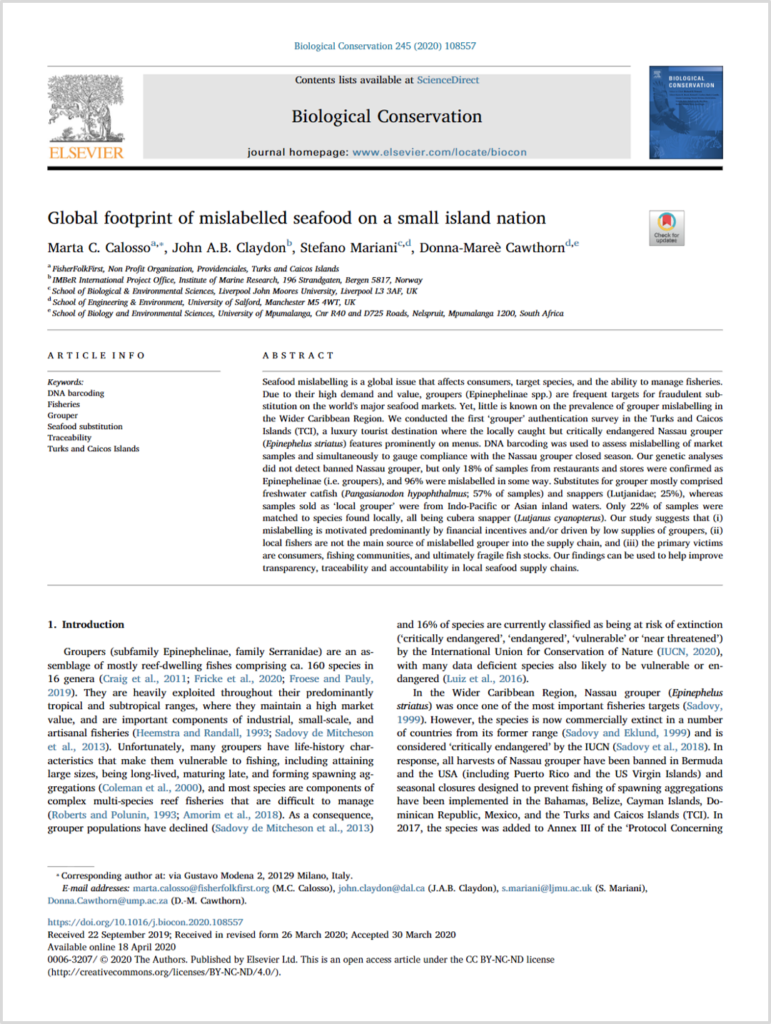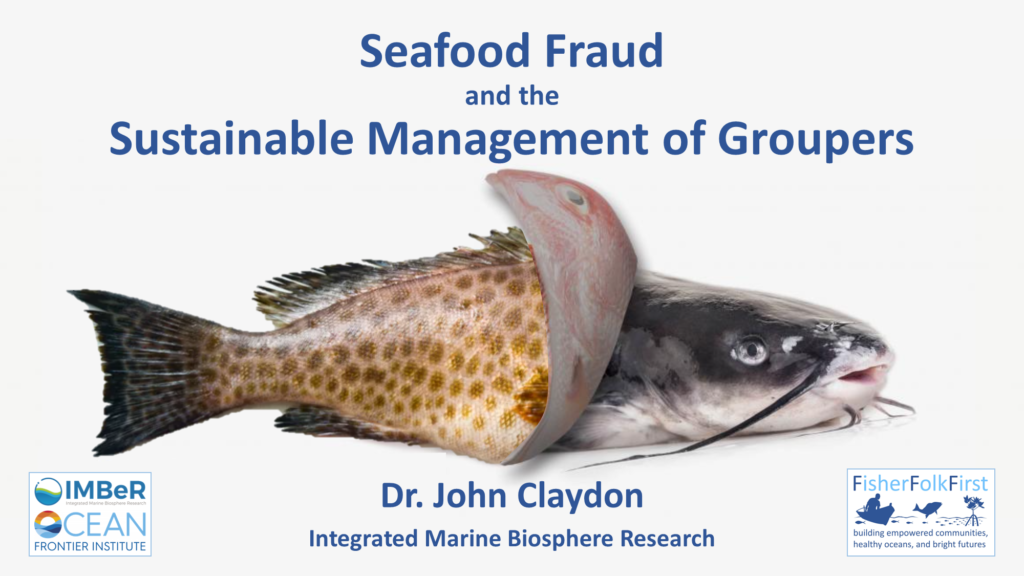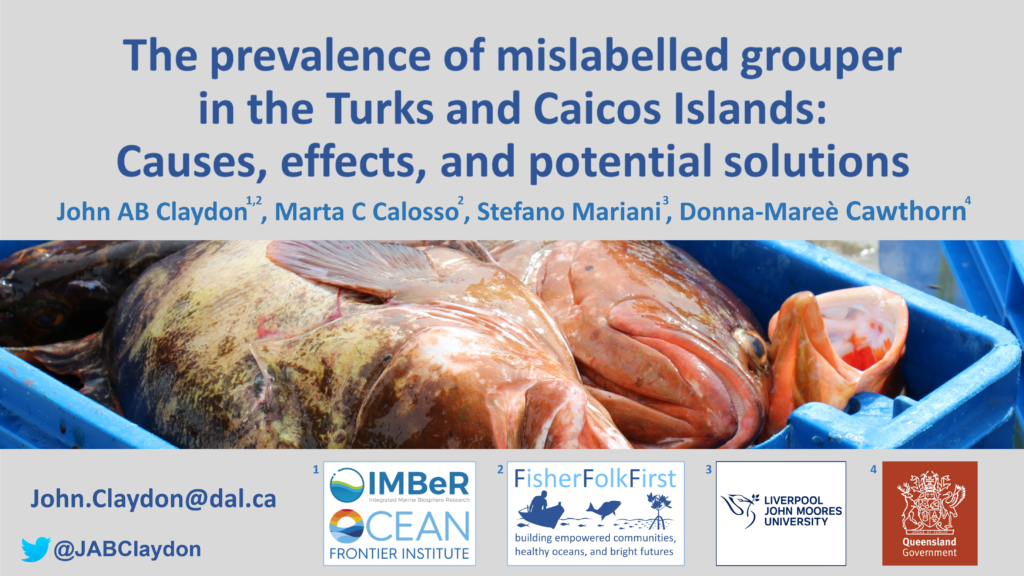Seafood Mislabelling
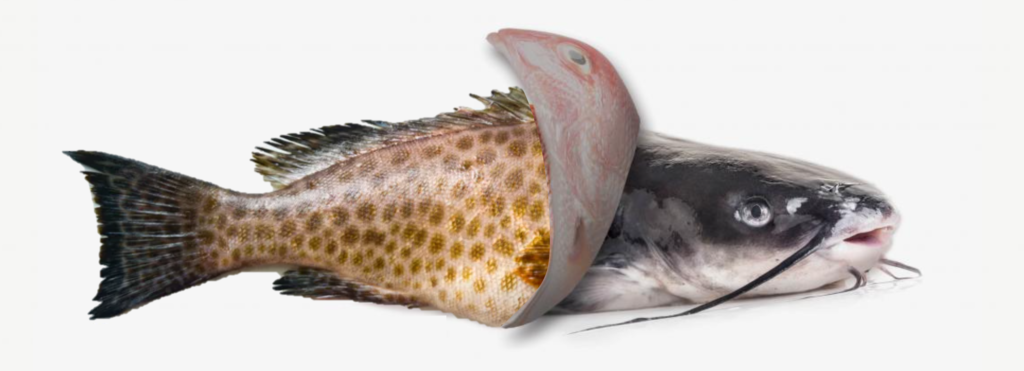
Globally, it is estimated that 30% of all seafood is mislabelled (Luque & Donlan 2019). While this obviously affects consumers, it is also a problem that affects fishers and the sustainability of fisheries: fishers are undercut by cheaper, fraudulent substitutes, and particularly when labelled as ‘locally caught’; the perception of abundance undermines efforts to manage fisheries of rare or overfished species; seafood fraud is a mechanism to launder illegally caught seafood, and thus jeopardises the sustainability of fisheries.
Seafood Mislabelling in the Turks and Caicos Islands
FisherFolkFirst conducted a study on the prevalence of mislabelled grouper in the Turks and Caicos Islands. We took samples from restaurants and stores throughout the country, and then sent the samples to colleagues in the UK for DNA analysis. We uncovered a truly remarkable level of fraud.
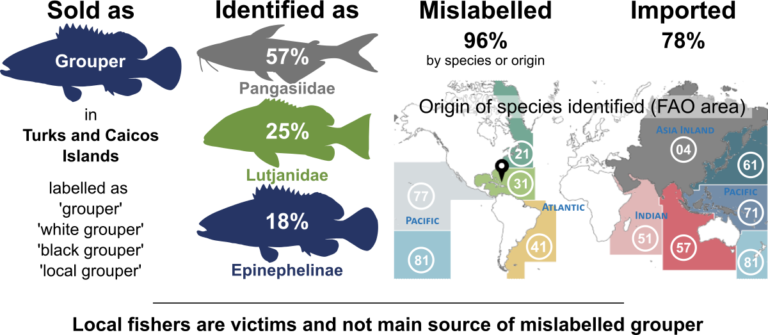
96% of samples were mislabelled by species or by origin: although 18% of samples were actually grouper, only one sample was labelled correctly, the others turned out to be different species than those declared, or were imported when labelled as ‘local’.
Publications
Calosso MC, Claydon JAB, Mariani S, Cawthorn DM (2020) Global footprint of mislabelled seafood on a small island nation. Biological Conservation 245:108557

